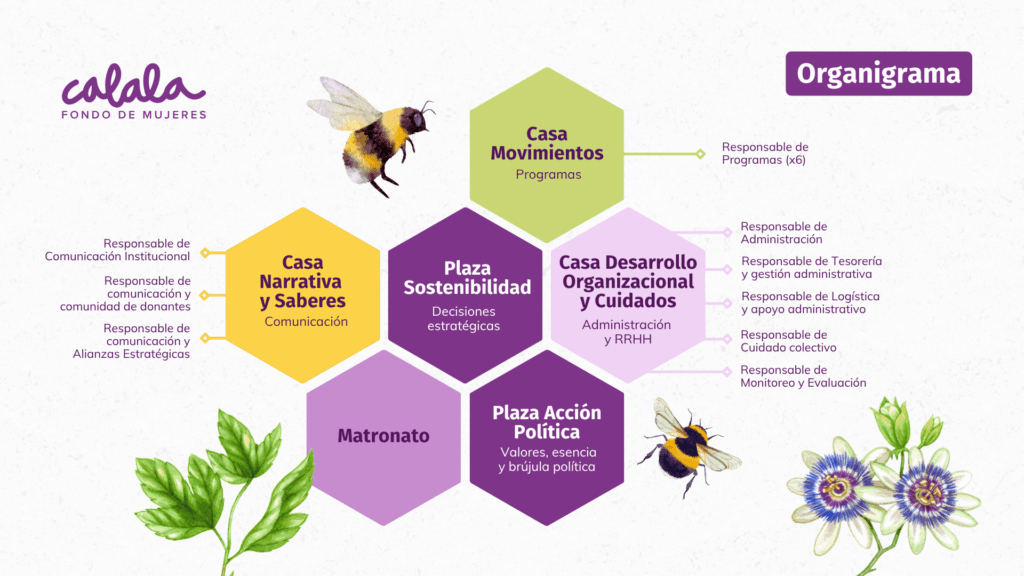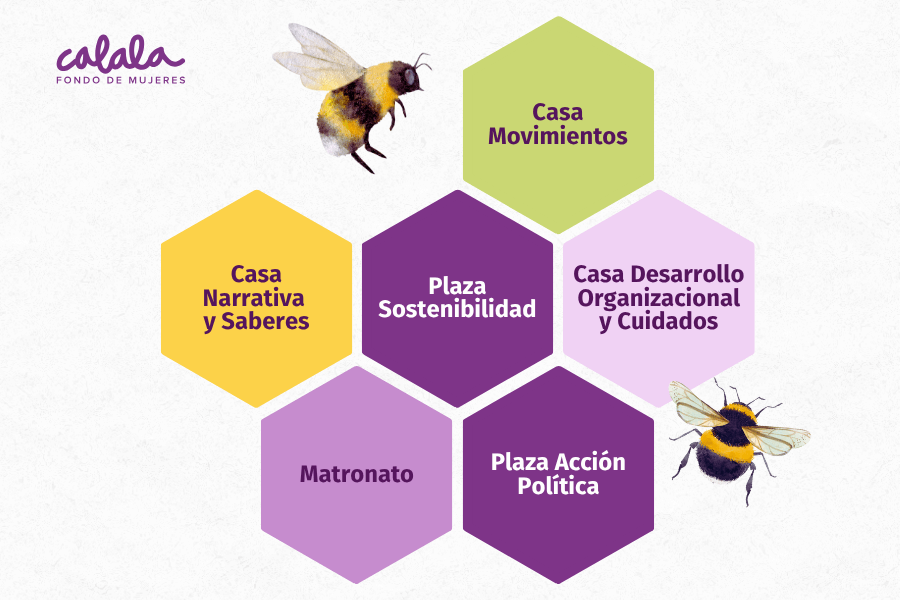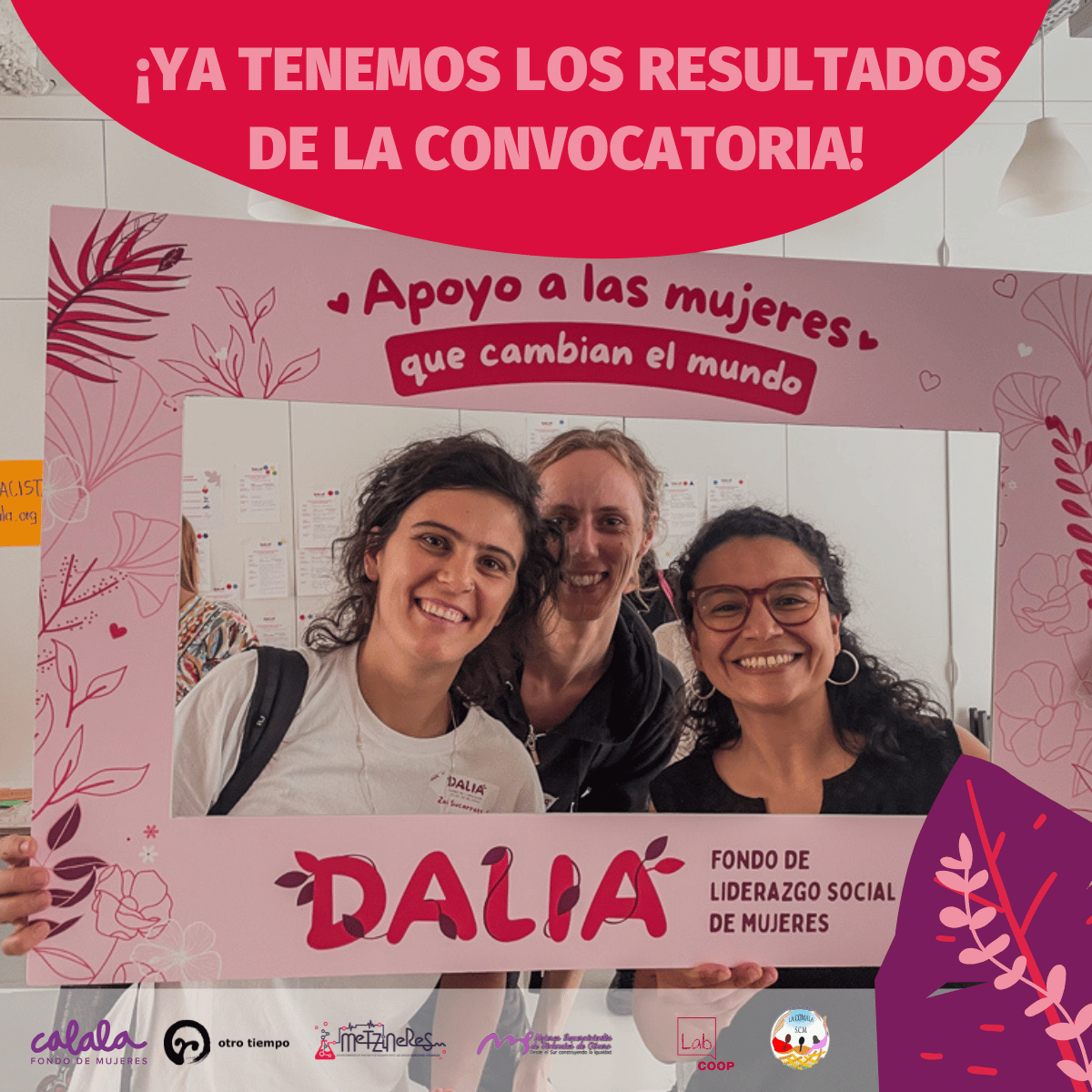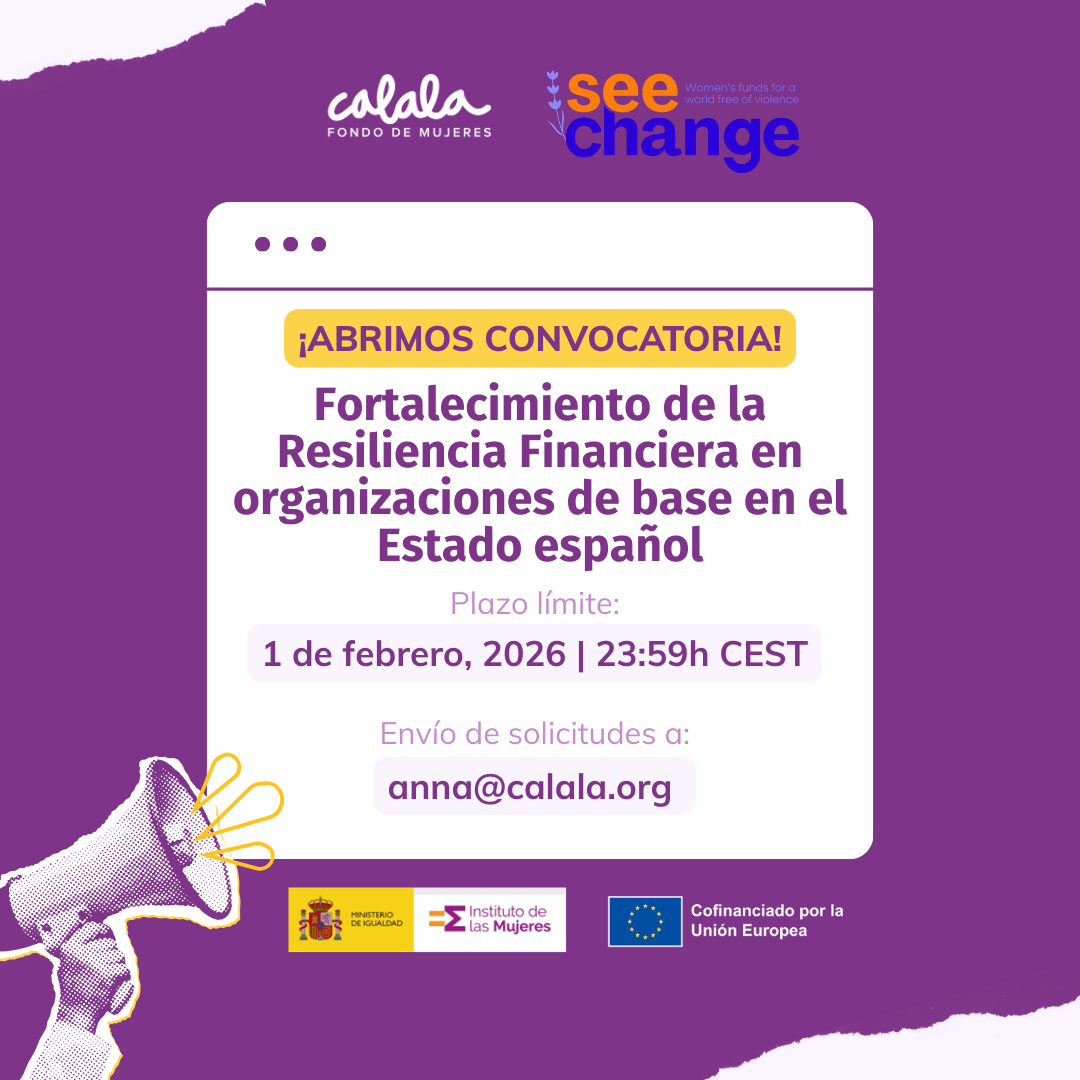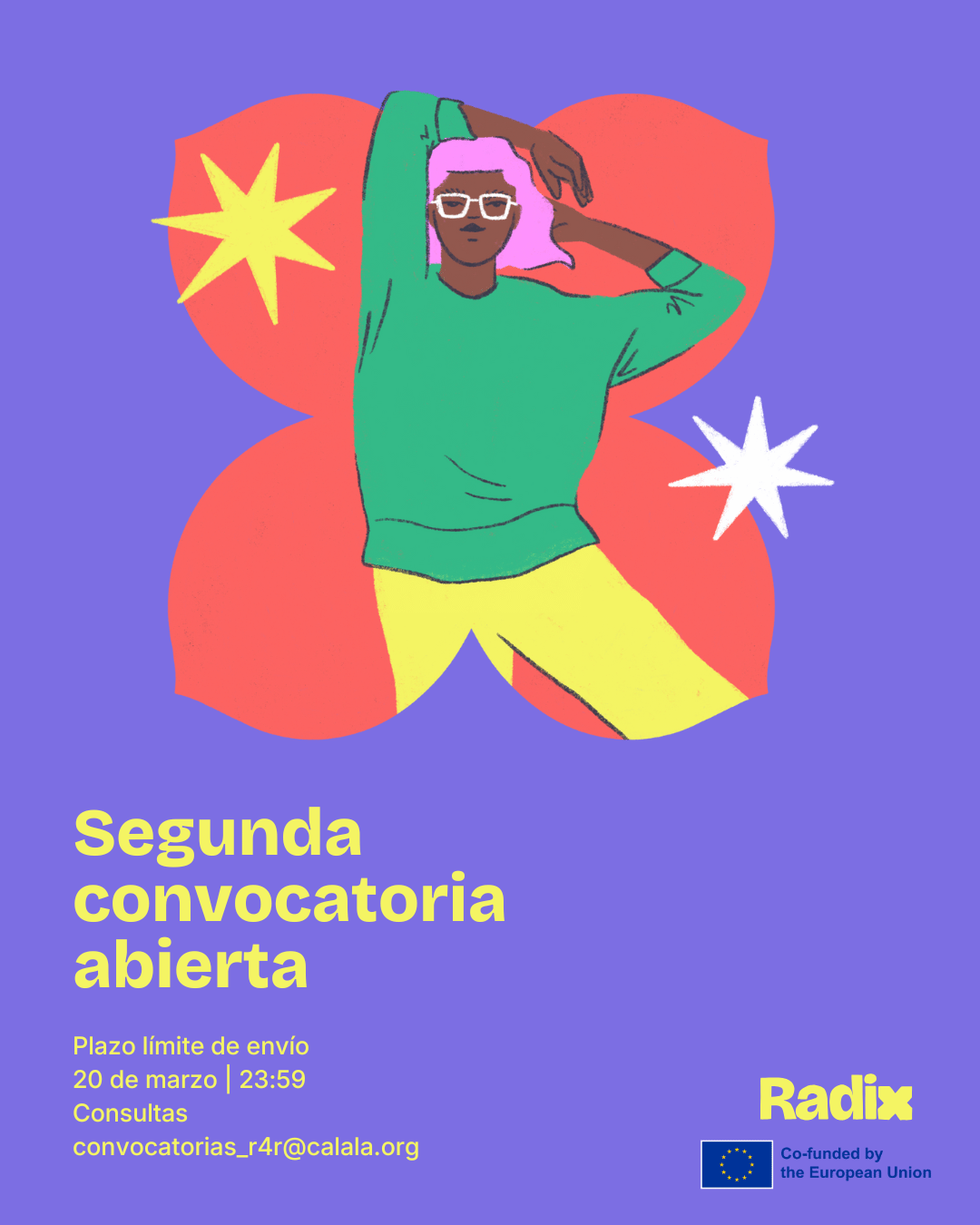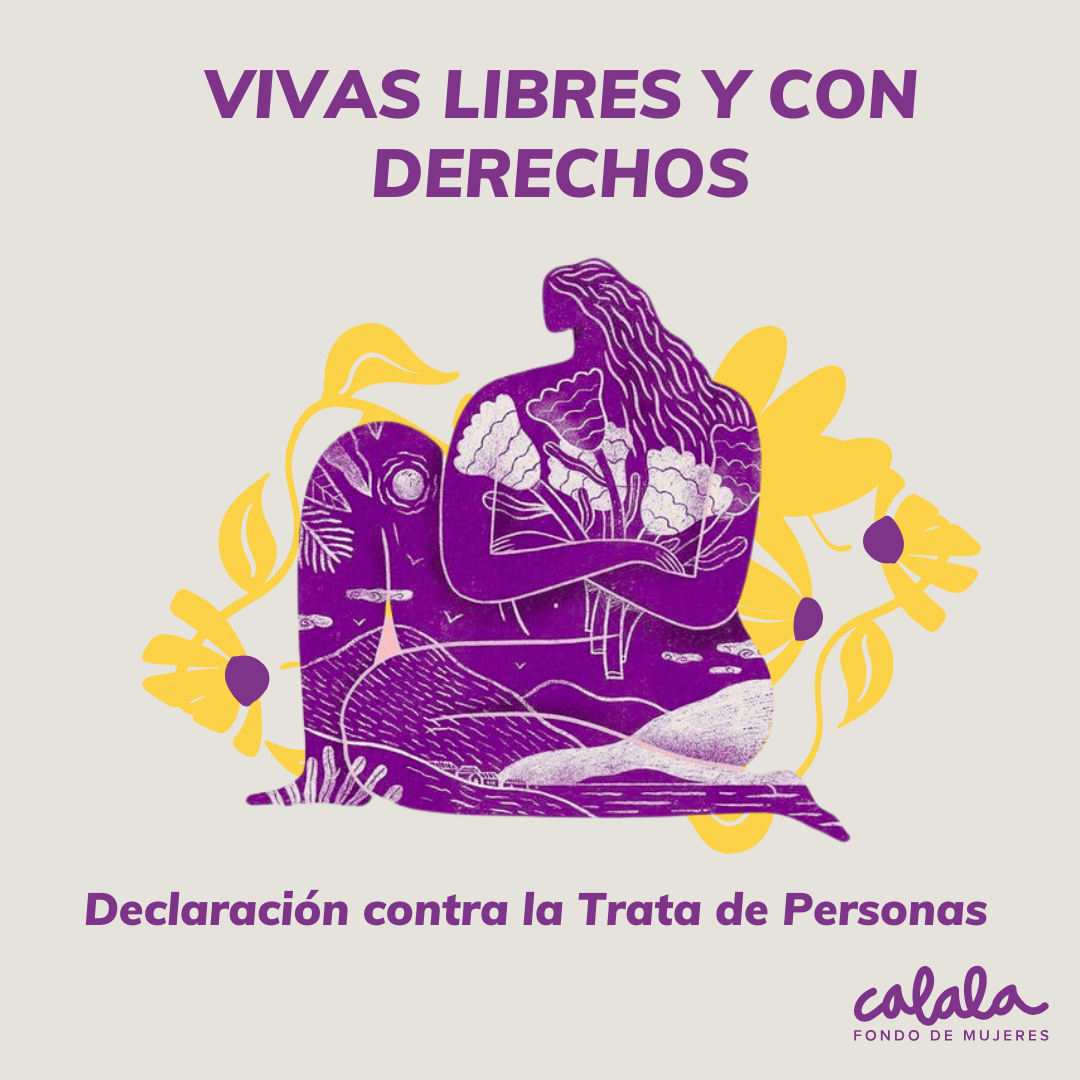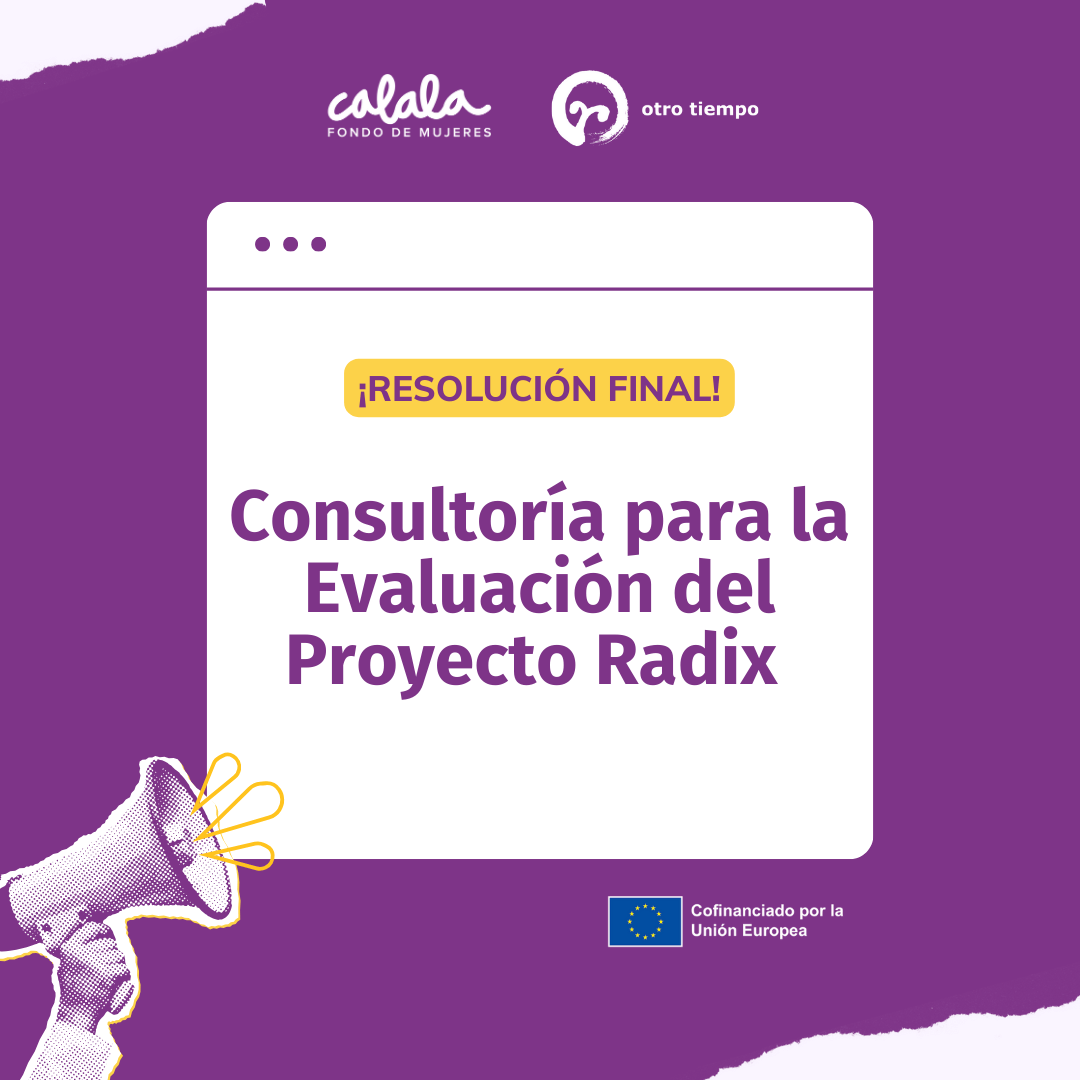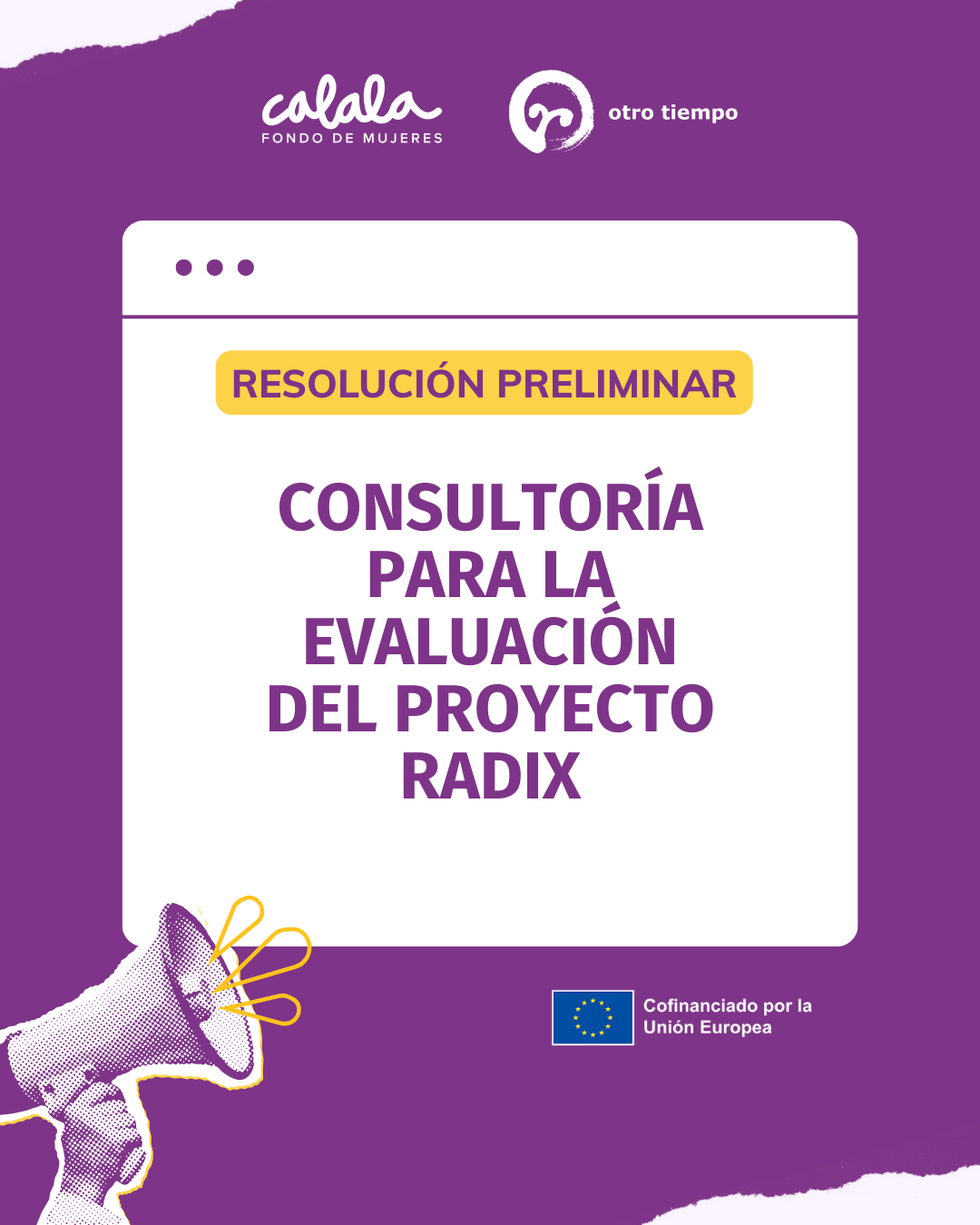As of January 2025, in Calala Women’s Fund we have launched a new horizontal organisational structure, consistent with our Theory of Change and with the feminist, anti-racist and decolonial values we stand for.
This change goes beyond the technical: is a political decision that transforms the way we organise, work and care for ourselves. We are committed to a model that puts at the core the internal democracy, transparency, organisational justice and collective well-being.
🔥 Why a horizontal structure?
How does our new organisational structure work?
Our model is based on Houses and Squares, inspired by methodologies such as sociocracy and feminist community knowledge and Central American roots.
Las Casas group together key technical functions, with autonomy and interconnectedness. They function as fluid, collaborative and accountable teams.
The Squares are spaces for collective strategy and coordination; they are unipersonal leadership figures. Here, tensions are detected, collective decisions are taken and the organisational pulse is kept.
This structure seeks to promote the interdependence, We work to reduce bureaucracy, clarify roles and better distribute workloads. We work from the co-responsibility, trust and autonomy.
A collective process under construction
The transition has not been easy or linear. We have gone through resistance, doubts and challenges. But we have also collaborated with a lot of creativity, commitment and joy. We are inspired by the nature and living systemsnon-hierarchical, dynamic, constantly changing.
This structure is not a closed model. It is a way of organising ourselves that will continue to adapt, always with the aim of being coherent with what we promote: social justice, shared leadership and collective power.
What are we looking for with this transformation?
We want what we live in Calala to be aligned with our actions. We are committed to an organisational model that strengthen our collective capacities to continue to accompany the feminist and anti-racist movements in Spain and Central America.
We work for:
Consolidating shared leadership
To sustain a lively, critical and joyful structure.
Harnessing our potential to fulfil Calala's mission effectively.
Putting care at the centre
Actively reflecting on power, racism and colonial logics
How do we organise ourselves now?
These are the Houses and Squares that make up Calala's new structure:
House Movements: It is responsible for project management and relations with public and private institutional donors, as well as working closely with the women's, feminist and LBTIQ+ groups with which Calala works. It is made up of: Anna Domínguez, Fiona Montagud, Greta Frankenfeld, Johanna Barragán, Margarita Morales and Nana Ziani.
House of Narratives and Knowledge: It handles institutional communication, liaison with individual donors, and the strategic alliances with corporate donors, weaving feminist and anti-racist narratives that inspire, connect and transform. Shaping the collective voice of Calala are Alejandra Morales, Manuela Sisti and Suyén Martínez.
Casa Organisational Development and Care: They are responsible for coordinating and executing administrative and organisational procedures that ensure robust and efficient management of existing resources. Activates monitoring, evaluation, and learning systems and follows up on our Theory of Change. Executes the team welfare care policy and procedures associated with the management of the organisation's human resources. Bertha Sánchez, Carolina Egio, Cristal Campillay, Hajar Oukhouya and Lyda Sierra.
Sustainability Square: Coordinates strategic aspects and organisational. It takes institutional decisions to give continuity to our mission. It is made up of 2 members from each of the houses. This participation is rotating.
Political Action Plaza: Sailing to guarantee that Calala's values and mission are always present in each of the actions we promote as an organisation.. Composed of 3 companions from the different houses. As in Sustainability Plaza, this participation is on a rotational basis.
We continue to transform ourselves, to take care of ourselves and to build together new ways of organising ourselves to decide the lives we want.
